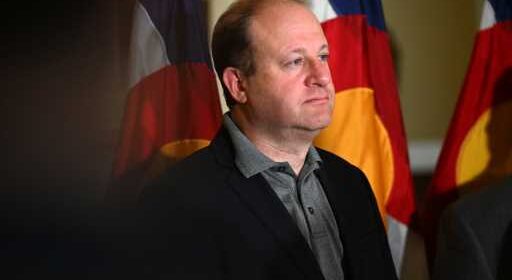Polis vetoes bill to standardize Colorado clemency applications

Gov. Jared Polis vetoed a bill Tuesday that would’ve standardized how Colorado prison inmates apply for their sentences to be commuted, part of the first package of vetoes the governor has issued this year.
In a letter to the bill’s sponsors, Polis wrote that the measure was unconstitutional and infringed upon his sole authority to grant clemency. HB23-1214 would’ve required set procedures and notifications for inmates applying for their sentences to be commuted, which supporters said was important to ensure transparency and accountability for inmates and state officials alike.
But Polis argued that the requirements in the bill put guardrails around a process that is entirely under the control of his office.
“While the bill is well-intentioned, the Colorado Constitution clearly sets out that the legislature
may not prescribe the manner of applying for commutations,” he wrote in a Tuesday veto letter to the bill’s sponsors, Democrats Rep. Elisabeth Epps, Sen. James Coleman and Sen. Julie Gonzales.
Epps said Tuesday that the goal of the bill wasn’t to infringe upon the governor’s authority but to ensure the process was clear. She said the issue was brought to legislators by people currently incarcerated who worked with the Second Chance Center.
“Their goal, and mine in taking it on with them, was to acknowledge that the commutation application process is just unnecessarily opaque and inconsistent across Colorado,” Epps said. “The process — I’m not talking about the decisions the governor makes, but the literal process of submitting the application.”
Messages sent to the Second Chance Center, Coleman and Gonzales were not returned Tuesday. In response to a request for comment from Polis, his spokesman sent a copy of the letter describing his reasons for vetoing the bill.
To apply for clemency, people in prison currently send a completed application to the state director of clemency within the Department of Corrections. If the inmate meets certain criteria, the director then convenes a board to consider the application and forward recommendations to the governor, who then makes a final decision on whether to grant the request.
But Epps said applicants are often unclear on the status of their applications, and she called the process a “black box.” Her bill would’ve required more direct updates between inmates and the people weighing their fate, including about the status of the application and whether any materials are missing. It also would’ve established circumstances that the board and governor can — but don’t have to — consider, including victim impact statements, the nature of the case and the applicant’s character.
At one point, the bill also would’ve required the governor’s office to collect data on commutation applications and to post that data publicly. That was stripped from the bill, Epps said, over objections from Polis’ office.
Also on Tuesday, Polis vetoed a bill that would’ve delayed the introduction of gray wolves into the state, along with a measure to reimburse people for taking private driver’s tests. The three vetoes represented his first rejection of legislation this year. Lawmakers concluded their work for the year on May 8.
In December, Polis granted clemency to 24 people. One of them was Robin Farris, who served more than 30 years for killing an Aurora woman she was dating. As a result of Polis’ decision, Farris was released eight years before she otherwise would’ve been eligible for parole.
A year before, in December 2021, Polis wiped away most of the 110-year sentence levied against Rogel Aguilera-Mederos, a truck driver who in 2019 was convicted in a crash that killed four people. Aguilera-Mederos’ sentence was reduced to 10 years.
Epps said she disagreed with Polis’ legal analysis and that she was disappointed that the bill was vetoed, particularly given participation by people who are incarcerated. She was aware that Polis may veto the bill and had asked the inmates supporting the bill if they wanted to continue, despite that threat. They said yes.
Despite the disappointment, Epps said she was grateful that Polis vetoed the bill publicly and that she would work this summer with the Department of Corrections to enact some changes outside the bounds of legislation. Legislators — including Epps — have expressed growing frustration at Polis’ presence in the legislature. Bills are heavily amended or defeated entirely based on veto threats or his opposition.
“This bill is about transparency, and the veto is at least transparent,” Epps said, adding that she may also bring a similar bill next session. “It’s done in the daylight, in (Polis’) name. That part of the process I respect because everything’s in the open.”
Denver Post reporter Nick Coltrain contributed to this report.
Stay up-to-date with Colorado Politics by signing up for our weekly newsletter, The Spot.
Source: Read Full Article
